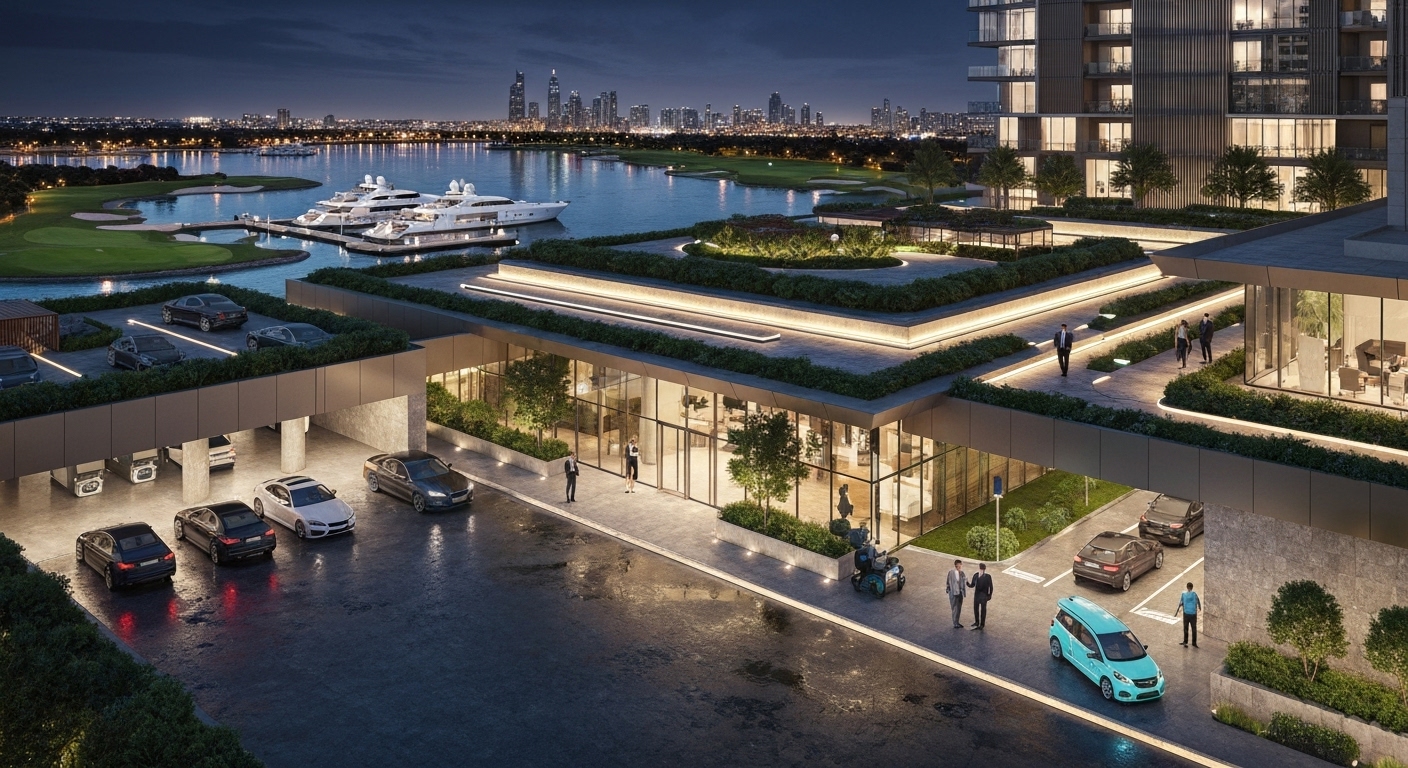As Dubai’s real estate market continues its robust growth trajectory in 2025, high-net-worth individuals (HNIs) increasingly focus on understanding the complete cost of property ownership. Service charges, often overlooked in initial investment calculations, represent a critical component that can significantly impact long-term returns and investment strategies.
Understanding Dubai’s Service Charges: The Foundation for HNI Investors
Service charges in Dubai encompass the ongoing costs of maintaining common areas, facilities, and essential services within residential developments. For HNI investors, these charges directly affect net rental yields and overall investment performance. Unlike many global markets where service charges remain opaque, Dubai’s regulatory framework under RERA (Real Estate Regulatory Agency) mandates transparency in service charge structures.
The typical service charge structure includes maintenance of lobbies, elevators, swimming pools, gymnasiums, security services, landscaping, and utility distribution systems. For luxury developments favored by HNIs, these charges often include premium services such as concierge support, valet parking, and specialized facility management.
Key Factors Influencing Service Charges in Luxury Dubai Properties (2025)
Several critical factors determine service charge levels in high-end Dubai properties. Property age significantly impacts costs, with newer developments typically featuring lower charges due to modern, energy-efficient systems and reduced maintenance requirements. Conversely, premium amenities that attract HNI buyers—such as private beach access, championship golf courses, or helicopter landing pads—command higher service charges.
Location plays a pivotal role, with prime areas like Downtown Dubai, Dubai Marina, and Palm Jumeirah typically carrying higher service charges due to premium positioning and enhanced security requirements. Building height and architectural complexity also influence costs, as high-rise towers require specialized maintenance equipment and expertise.
The quality of facility management companies contracted by developers significantly affects both service levels and costs. Established international facility management firms may charge premium rates but often deliver superior service quality and long-term cost efficiency.
Anticipated Changes and Regulations: What HNIs Need to Know for 2025
The 2025 regulatory landscape introduces enhanced transparency requirements for service charge calculations. RERA’s updated guidelines mandate detailed annual budgets and quarterly reporting, providing HNI investors with greater visibility into expense allocation and management efficiency.
New regulations require developers to establish service charge caps during the initial sale period, protecting investors from unexpected increases. These caps typically range from 3-7% annually, depending on property type and development stage. Additionally, the introduction of standardized service charge categories enables more accurate cross-development comparisons.
Sustainability initiatives gaining momentum in 2025 may initially increase service charges as developments implement green technologies. However, these investments often yield long-term cost savings through reduced utility expenses and enhanced property values.
Calculating Your Property’s Service Charges: A Guide for HNIs
Service charges in Dubai are typically calculated per square foot annually, with rates varying from AED 8-25 per square foot for standard developments to AED 30-50+ for ultra-luxury properties. For a 2,000 square foot apartment in a premium development, annual service charges might range from AED 40,000-80,000.
HNI investors should evaluate service charges as a percentage of rental income rather than absolute amounts. Well-managed properties with service charges representing 15-25% of gross rental income often indicate efficient operations and strong value retention.
Optimizing Your Investment: Strategies to Mitigate Service Charge Impact
Sophisticated HNI investors employ several strategies to optimize service charge impact. Selecting newer developments with modern infrastructure reduces long-term maintenance costs. Choosing properties in master-planned communities often provides economies of scale, resulting in more competitive service charges.
Negotiating longer-term leases with tenants can include service charge escalation clauses, transferring cost increases to occupants. Additionally, investing in developments with diverse revenue streams—such as retail components or hospitality services—can offset residential service charges through cross-subsidization.
Danube Properties Advantage: Transparent Service Charges and Value Proposition
Danube Properties has established itself as a leader in transparent service charge management, offering HNI investors predictable cost structures within their master-planned communities. Their approach emphasizes affordable luxury with starting prices from AED 550,000, combined with innovative payment plans that enhance accessibility without compromising quality.
The company’s track record of delivering over 831 units with a combined value exceeding AED 1.12 billion demonstrates their commitment to operational excellence and cost efficiency. Their developments consistently maintain competitive service charges while delivering premium amenities and services.
Beyond the Fees: The True Value of Master-Planned Communities for HNIs
For discerning HNI investors, service charges represent an investment in lifestyle and asset appreciation rather than merely operational expenses. Master-planned communities offer integrated ecosystems where service charges support comprehensive facility management, security, and community programming that enhance property values.
The strongest-performing luxury developments in Dubai’s 2025 market demonstrate that well-managed service charges correlate with superior capital appreciation and rental yields ranging from 6-12%. These communities create self-sustaining environments that attract and retain high-quality tenants, ensuring stable rental income and long-term value growth.
As Dubai continues attracting global wealth and establishing itself as a premier investment destination, understanding service charges becomes essential for HNI success. Strategic investors who evaluate these costs within the broader context of total returns position themselves for optimal performance in Dubai’s dynamic real estate market.




